SCS Blog Author Page
Posts by T. H. M. Gellar-Goad

|
Blog: Reading and Writing Classics Faculty Job Ads
This is the first in a three-part series that gathers perspectives on key steps in the job search process—job ads, first-round interviews, and campus visits—both from people with experience seeking faculty jobs and from members of search committees. If you would like to share your insights for part 2, fill out this anonymous form by September 22. And check out the Women’s Classical Caucus’ job market resource page for more helpful insights and advice! The faculty job season is upon us. Jobs are posting, application deadlines are growing closer on the horizon, the SCS’s placement report for last year is available, and the hellscape of job-market stress probably hasn’t yet fully descended on most of us who Read more … |
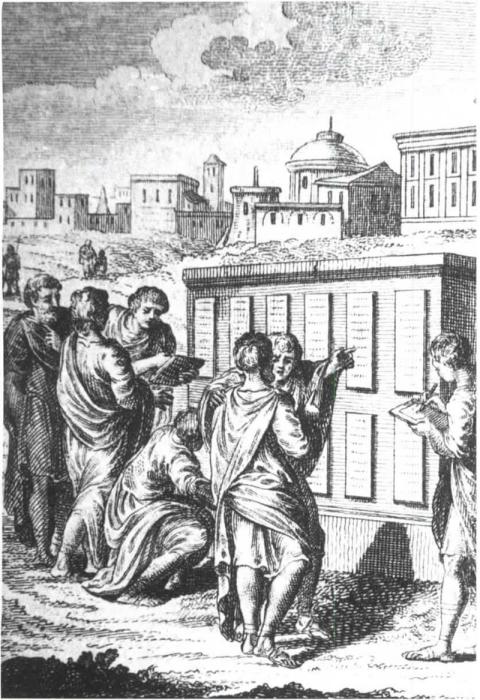
|
Blog: Updates to the SCS Blog guidelines
Omnia mutantur, nos et mutamur in illis. The Society for Classical Studies’ Communications Committee has approved a few changes to the SCS Blog guidelines, and we thought we’d get the word out about a couple consequential ones. First, anonymous and pseudonymous posts are no longer strictly out of the question. The new bottom line: The SCS Blog does not, as a rule, post anonymous content, meaning content written and submitted by one or more authors whose identities are unknown even to the editors of the blog. However, we are aware that there are situations where someone(s) might have valuable insight to share but not be able to do so out of concerns for retaliation or professional repercussions. Read more … |

|
Blog: Six months in(surrection)
Today marks half a year since insurrectionists stormed the U.S. Capitol, occupied the Senate chamber, violently assaulted Capitol Police defending the building, and threatened to assassinate the then-Vice President and other elected officials. In recent days, the House of Representatives has approved a plan for a formal investigation — on partisan lines, after Senate Republicans previously blocked the passage of a bipartisan, 9/11-style commission approved by the House in a bipartisan vote. We mustn’t forget the assault on the peaceful transition of Read more … |
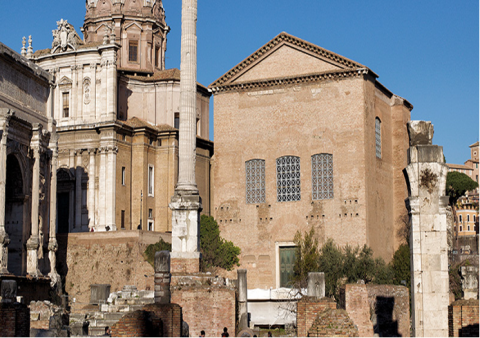
|
Blog: A committee, a coup, a Cruz, and a Catiline
Against the backdrop of the United States’ first non-peaceful transition of power, there is a much smaller-scale — and much more peaceful — transition happening: the changeover of the SCS Communications Committee chair and SCS blog Editor-in-Chief. Sarah Bond, after three years of visionary leadership and fantastic direction of the blog, has handed the reins over to me, as a veteran Committee member. I think I speak for the Committee and for the blog’s readership when I offer Sarah my profoundest gratitude and appreciation for her awe-inspiring work during her term. I’ll be standing on the shoulders and following in the footsteps of a giant. While I believe our SCS transition has been and Read more … |
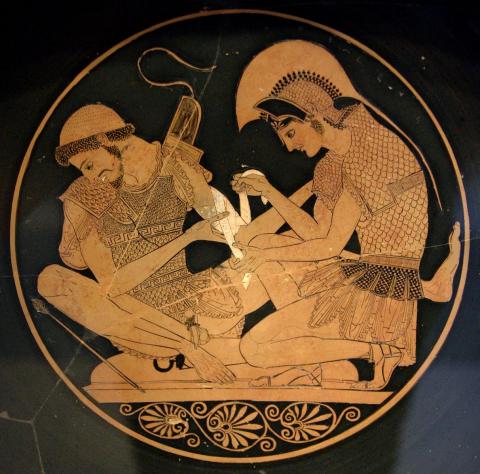
|
Blog: CAMWS and BYU: Background, Reflections, and Next Steps
by T. H. M. Gellar-Goad and Christopher B. Polt In this post, Profs. Gellar-Goad and Polt clarify their position in the debate over holding the annual CAMWS meeting at BYU for the 2023 annual meeting and why they view BYU as an unsafe conference site for LGTBQ+ classicists. On Saturday, April 20, the Classical Association of the Middle West and South (CAMWS) rescinded its earlier decision to hold part of its annual meeting on the campus of Brigham Young University (BYU) during its 2023 conference in Provo, Utah. CAMWS leadership had selected Brigham Young University (BYU) to host its 2023 annual meeting — despite the fact that serious concerns about the safety and inclusion of its LGBTQ+ members at such a conference site were voiced before and after that decision was made — and dismissed repeated requests for compromise that would safeguard LGBTQ+ colleagues. Over the last 18 months we tried to work with, and Read more … |
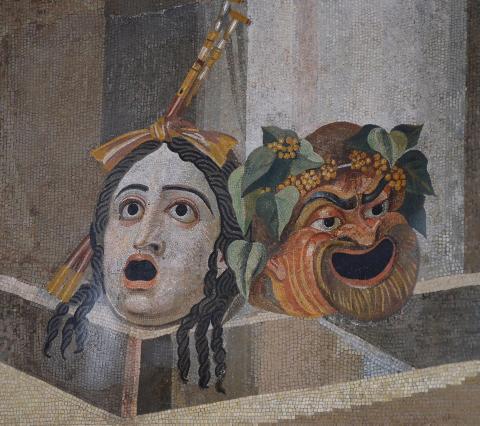
|
Blog: Teaching Comedy through Performance
Ancient comedy was a thoroughly performative genre, meant to be seen and heard, not read. This point should be obvious, but it can easily get lost in a traditional college or university course on comedy in translation, given the textual nature of the transmission of comedies, their distance in time and culture, the difficulties presented by translated material, and the demands and traditions of teaching Greek and Roman literature generally. In this post I describe a comedy-in-performance assignment that T.H.M Gellar-Goad and I created and have used in teaching general-education courses at two different American universities. One of us employed it in lieu of the usual final exam and term paper; the other was bound by writing seminar standards to include a term paper in addition to the performance project. The basic idea is flexible enough to fit drama of any period or genre, and could be used in various levels and types of courses (not, admittedly, massive lecture courses), for Read more … |
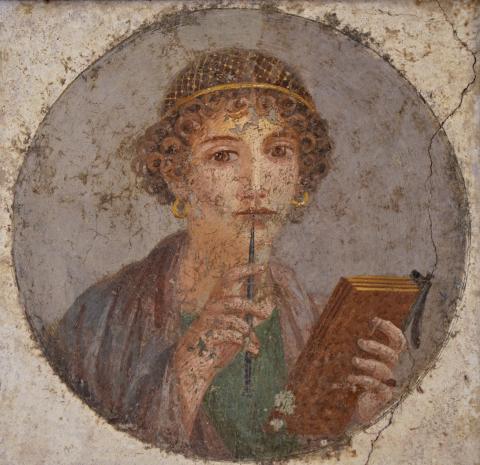
|
Review: The Latin Library
If you’ve studied or taught Latin in the last decade or so, you’ve probably used or at least encountered The Latin Library, administered by William L. Carey, Adjunct Professor of Latin and Roman Law at George Mason University. It’s a simple, free, HTML-based site with a huge collection of Latin texts spanning the longue durée of Latin literature. The purpose of the site is to offer digital texts “for ease of on-line reading or for downloading for personal or educational use” ( see “About These Texts”). You won’t find critical texts, apparatus, commentary, or grammatical reading aids; epigraphers, papyrologists and those wishing to dive deep into late antique, mediaeval, or Renaissance Latin will not find everything they need here—but otherwise, pretty much every text a student of classical Latin literature could want is available here in some form Read more … |
How learning works in the Greek and Latin classroom, part 7
This month’s column is the final in my series about how we can apply and see in action the 7 principles of research-based pedagogy described in the excellent book How Learning Works, by Susan Ambrose, et al. Last time was metacognition. Before that came mastery, prior knowledge, practice and feedback, motivation, and Read more … |
|
Sappho and Elizabeth Bishop on lonely moonlit nights
One of my favorite pieces of Greek lyric poetry is the short “Pleiades poem,” fr. adesp. 976, consisting of four gorgeous lines attributed to Sappho by David Campbell and others (at least as far back as 1882, in Bergk’s edition, which numbers it Sappho fr. 52): δέδυκε μὲν ἀ σελάννα the moon’s disappeared above me I’d Read more … |
|
Sinister adaptation: Sensationalism and violence against women in Roman drama and Anglo-American cinema (part 2: 300, Terence, and Seneca)
In March’s column, I examined the pattern I term “sinister adaptation” in Fifty Shades of Grey, The Hunger Games, and Game of Thrones: the cinematic or television adaptation exaggerates violence against women present in the source-text or adds in violence that was not previously there. Today, I contrast these examples (and one more American film) with Terentian comedy and Senecan tragedy.
|

 My final Anglo-American example of sinister adaptation is a film drawing upon Graeco-Roman antiquity, 300: Rise of an Empire. This film — a sequel to 300 (which was based on Frank Miller’
My final Anglo-American example of sinister adaptation is a film drawing upon Graeco-Roman antiquity, 300: Rise of an Empire. This film — a sequel to 300 (which was based on Frank Miller’